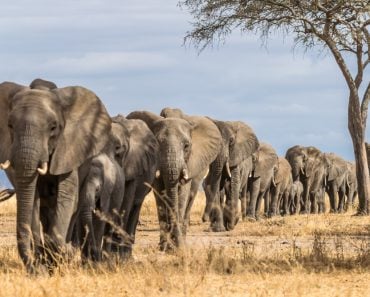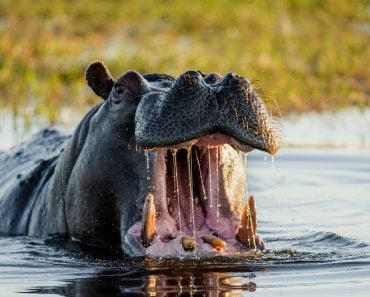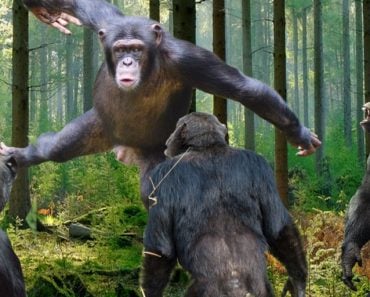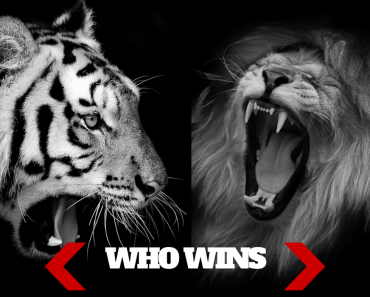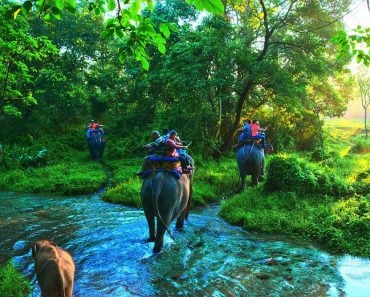Table of Contents (click to expand)
Zebras are aggressive, unpredictable and have sharp reflexes, owing to their natural habitat. They view us as predators and fight back to remain wild and free!
When you picture a zebra, you probably imagine a black- and white-striped animal, somewhere between a horse and a donkey. Some may think of a poor little zebra surrounded by predators in the unforgiving African plains, while others may imagine ‘Marty’ from Madagascar!
They look like cute and nearly defenseless animals, but they can kick and bite in a desperate attempt to save themselves. Poor, poor zebras! Or are they? If zebras were actually the innocent and docile animals that we imagine them to be, why don’t we ride zebras like horses? It would certainly look classier than a normal horse, right?
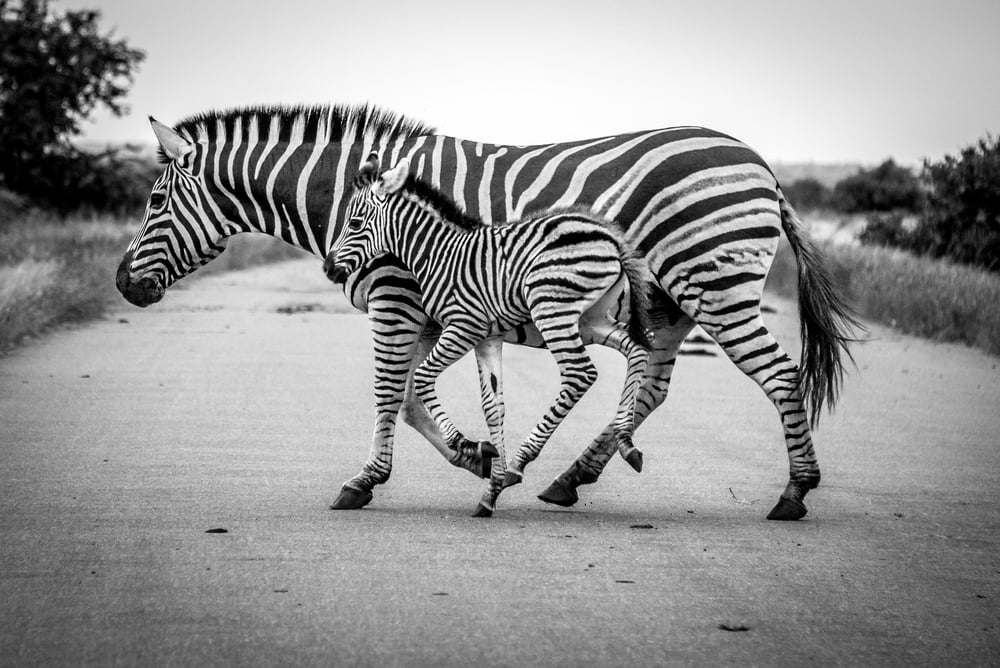
Recommended Video for you:
Human Colonization Analogy
If human civilization records are correct, Homo sapiens first appeared in Africa and later ‘colonized’ different parts of Eurasia. As a ‘species’, we were basically moving around, killing and oppressing other animals that were native to those regions. An example of this is when we domesticated horses, which were native to North America. Initially, horses did not know what to do with humans, as they were a new and unknown threat.
The first encounter between a horse and a human would have gone something like this:
Horse (sees a human): Hey pal, what’s that thing? It’s pretty small and not very hairy. I’ve never seen something like that before. Let’s wait and see what it does.
Man 1: Whoa! That’s a good-looking animal right there. Should we eat it?
Man 2: Oh! Look how it runs. It sure is fast. We have enough to eat as it is. Let’s just ride this so we can move around faster!
After something like that exchange, it was decided that these wild beasts had to be tamed. Over the years humans and horses both spread out to many more regions, which led to various evolutionary developments, but horses never developed the instinct to fear or flee from humans. It was as though they evolved into comparatively cooler and calmer versions of themselves. Unfortunately, humans don’t know how to maintain an ecosystem balance, so now there are hardly any wild horses left! The free horses that you see galloping around in movies are ‘feral’ horses, which means they’re descendants of domesticated horses, and therefore not technically wild.
Why Did We Give Up On Taming Zebras?
Zebras are native to the African plains, the same place where humans started off, so they kind of knew about our species. When human colonization eventually spread to Africa, horses were the only widely used form of transport. Horses formed the base of all communication and transport networks. However, horses are not native to Africa, so people began to think of alternatives. Zebras, an apparent hybrid mix of horses and donkeys, was a perfect solution. Or so they thought!
As mentioned, zebras were familiar with us and our methods, and rightfully viewed us as predators, unlike the wild horses in North America who were unfamiliar to human ways. Zebras knew that cavemen hunted them, and they had to survive many other predators, including lions, cheetahs and hyenas, in addition to humans. As a result, they developed the instincts and reflexes to survive attacks from numerous predators. Tendencies and temperaments develop as animals evolve; over the centuries, some of these behavioral instincts became a part of their brain’s physiology. Zebras had the knowledge of human tendencies and regarded us with skepticism, while the same cannot be said for horses.
The Zebra You Don’t Know
The beautiful and seemingly harmless zebra has actually been known to seriously injure humans who have tried to come near them (in zoos). In fact, they are known to hold on to a bite until the person dies. They have also kicked hard enough to cause fatal injuries to people.
Zebras do not listen to humans or breed like humans want them to. They get cranky and kick each other (to death, sometimes) when held in captivity. They are truly ‘wild’ and don’t need to serve us to survive, nor are they ideal guests in our zoos.
Throughout the 19th and 20th centuries, when colonization was gaining peak momentum, people tried to tame zebras, but the experience quickly taught us to simply leave them alone! Their wild characteristics make them quite unsuitable for domestication.
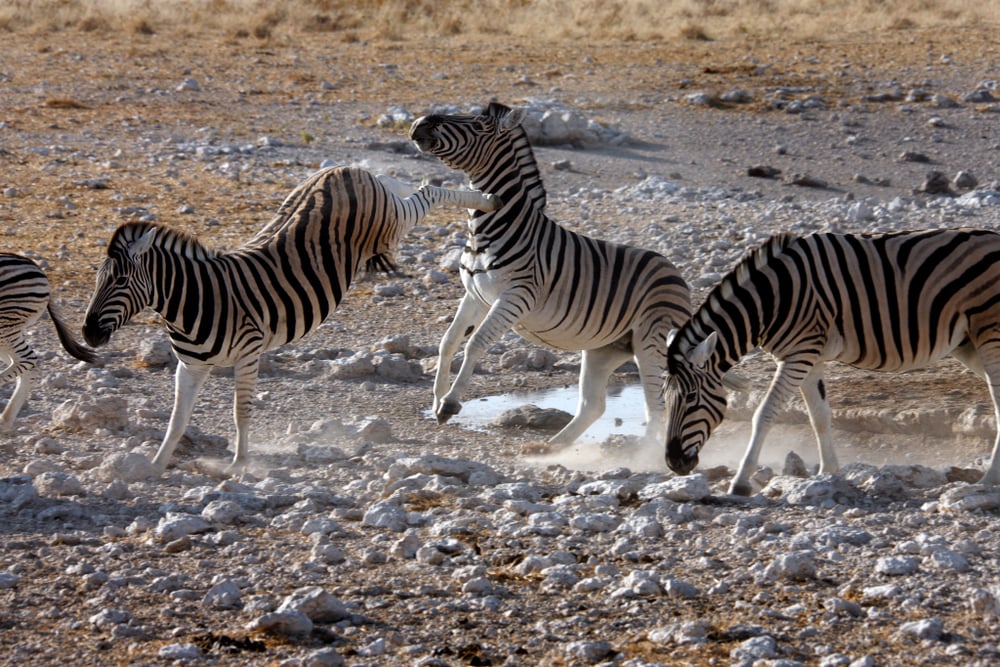
We have attempted multiple times to domesticate these fascinating beasts, but with their unpredictable nature and undying spirit, all human efforts have inevitable failed. Zebras even pulled carriages in the past, but no one has been successful in truly domesticating them.
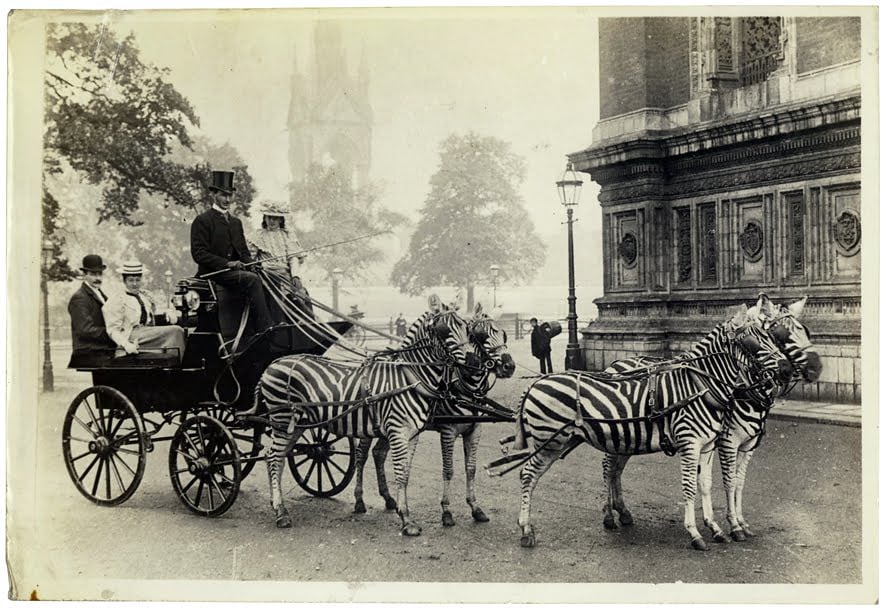
Zebras don’t fit the domestication criteria, as humans prefer animals with the following characteristics:
- Calm temperament
- Produce offspring in captivity
- Lack of aggression
It didn’t take long to observe zebras and determine that they can suddenly become nasty and cruel, and will even hurt their own kind. They are nomadic and don’t stay in territories like lions, and therefore despise being enclosed.
Their aggressive nature and strong body structure means that they can cause some serious damage to anyone coming near them. Basically, not all animals are domesticable and zebras have made their opinion on the matter very clear!

